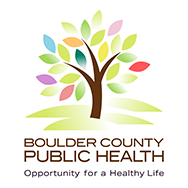Xylazine Is in Boulder County
Xylazine is a drug that is often added to other drugs and has been identified in the illegal opioid drug supply in Boulder County. Xylazine is a veterinary tranquilizer that has not been approved for human use and has been linked to a higher risk of overdose and death from overdose throughout the country.
Xylazine, also known as “tranq,” can be mixed into pills or powder. People may not know it is in the drugs they are using. Xylazine is most common as an additive in illicit opioids. There is a potential for cross-contamination with other illicit substances, such as methamphetamine, cocaine, and other narcotics.
Xylazine Health Impacts
Xylazine can cause drowsiness, memory loss, slow breathing, and dangerously low heart rate and blood pressure. Xylazine can lead to an increased risk of fatal overdose, especially when used with opioids, alcohol, or other central nervous system depressants.
The Drug Enforcement Administration (DEA) has seized xylazine and fentanyl mixtures in 48 of 50 states, and the DEA Laboratory System reports that in 2022 approximately 23% of fentanyl powder and 7% of fentanyl pills seized by the DEA contained xylazine.
Overdose Response
Although xylazine is not an opioid, it is critical to administer Naloxone (also known as Narcan or Kloxxado) to anyone showing signs of an overdose because the overdose may be caused by a mixture of fentanyl or another opioid with xylazine. It is also important not to use drugs alone due to the risk of overdose.
If an overdose is suspected and someone is unresponsive, Boulder County Public Health (BCPH) urges the following steps:
- Get their attention—rub the person’s chest and check if they are breathing or have a pulse.
- Administer Naloxone.
- Call 911 and remain present until help arrives. Colorado has a Good Samaritan Law, and you will not be charged with drug possession in amounts for personal consumption if you call 911 and remain present until help arrives.
- If the person has a pulse but is not breathing, give rescue breaths. CPR can be started even if you are not trained to provide it.
- Lay the person on their back, tilt their chin back, clear their airway, pinch the person’s nose closed and cover their mouth with your mouth. Blow two regular breaths, then give one breath every five seconds.
- Place them in the recovery position:
- Roll the person on their side with their hand supporting their head and bend their knee to prevent them from rolling over.
- Stay with the person until help arrives.
Overdose Prevention
BCPH also recommends these steps to help lessen the potential for overdoses:
- Assume that any pills bought from a non-pharmacy source may contain a deadly dose of fentanyl, xylazine, or other substances, and follow all precautions to prevent and respond to an overdose.
- Carry Naloxone and make sure that the people you know also carry it and know how to administer it. Naloxone can reverse the effects of opioid overdoses.
- Don’t use drugs while alone. If you can’t be with someone else, plan to have someone check in on you so they can help you if needed. If you are with someone else who will also use drugs, take turns using them and have someone else check in with everyone.
- Start with a very small dose every time you have something new. You can always add more, but you cannot subtract.
If you, a friend or a family member know or suspect someone is using illegal substances, please advise them to carry Naloxone. Naloxone is available at local pharmacies without a prescription and is covered by most insurance plans and is available for free from BCPH for Works Program participants, as well as from the University of Colorado at Wardenburg Health Center for students and employees.
Resources
- Overdose prevention
- How to dispose of drugs
- Substance Use Advisory Group
- Talk to a harm reduction specialist: 303-441-1100



